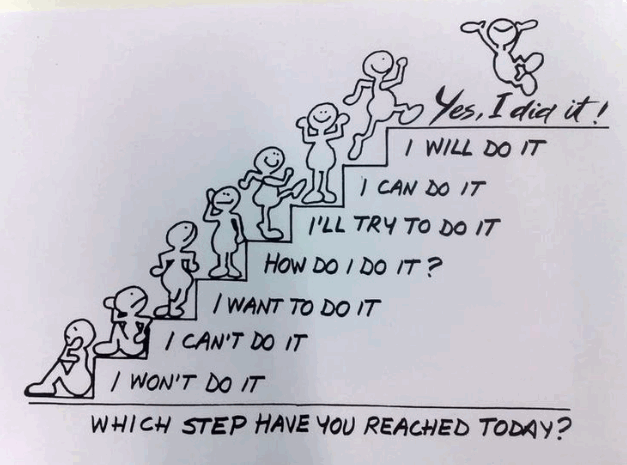Managing Change
PREPARING YOUR CHILD FOR CHANGE
Children like routine.
They want things to be predictable and flourish on knowing what happens when.
Every year they are faced with change by moving from one grade to another, one teacher to another and often faces the unavoidable experience of changing friendships.
All these changes may lead to a sense of loss and separation anxiety.
CHANGE AFFECTING BEHAVIOUR
In his book, Why zebras don’t get ulcers, Robert M. Sapolsky describes the effects of stress on
people. Sapolsky the reaction of zebras to stress as a FIGHT, FLIGHT or FREEZE response.
Because we encourage our children to toughen up and deal with the stress relating to change without providing the coping mechanisms to guide their thinking and behaviour, they tend to find their own by spending excessive time in front to the television (TV Numbing), loading up on feel good foods (Carbohydrates and Sugar). Their experience of loss impacts their way of thinking, doing and feeling causing emotional and physical behavioural changes such as feelings of emptiness, heightened cynicism, feelings of unforgiving and a need to prove themselves to you and their significant others (siblings, friends, teachers).
THINGS TO LOOK OUT FOR WHEN CHANGE HAPPENS
PHYSICAL SYMPTOMS
Muscle tension Idiopathic aches and pains. Gastrointestinal problems – nausea, vomiting, diarrhea. Headaches. Changes in appetite and sleep patterns. Heart palpitations. Fatigue, lack of energy.
BEHAVIORAL SYMPTOMS:
Tearfulness
Engaging in self-destructive behaviours
Withdrawing from friends and previously-enjoyed activities
Increasing amounts of time spent alone
Increased absences from school
Fighting
Acting out
COGNITIVE SYMPTOMS:
Inability to focus on particular tasks
Overwhelmed by demands of school or work
PSYCHOSOCIAL SYMPTOMS:
Depressed mood, Anxiety
Stress, feeling hopeless, Mood swings, Nervousness, Aggressive outbursts, Worrying, Jitteriness, Fear of separation from important figures in child’s life
BUILDING RESILIENCE
Children learn how to cope with change by developing resilience. This is one of the most important qualities you can teach your child (along with compassion).
HOW DO THEY LEARN IT?
By watching us. Studies have shown that children as young as two years old copy the coping, stress management and thinking styles of the adults around them. And they can sense if parents are anxious or worried and will tend to mimic that.
Andrew Fuller, consultant psychologist for The Resilience Foundation and author of Tricky Kids, says resilient parents raise resilient kids. Reinforcing “it starts at home”. He says it’s a handy skill for parents to learn to hold their own anxieties in check.
Her describes resilience as “the happy knack of being able to bungee jump through the pitfalls of life”.
TOP 5 PRACTICAL COPING SKILLS FOR PARENTS WHO WANT TO HELP THEIR CHILDREN MANAGE CHANGE:
1. Be prepared to answer their myriad of questions – and create an environment in which they feel safe about asking you anything about the changes they’re facing.
2. Asking questions helps them process change and the answers they receive from the people
they trust most – that is mom and dad – will help them transition.
3. Stick to routines as much as possible – try not to change everything at once. If you have routines in place like bedtime rituals, the books you read even the TV shows you all watch, try to keep those in place where possible.
4. Let them grieve – when any of us move, change schools, or make any kind of change in life, we leave something behind. Let your littlies talk about what they miss and don’t try to point out all of the wonderful things about their new school, bedroom or whatever – let them appropriately mourn what they have lost.
5. Be prepared to weather the change – many kids don’t adapt immediately and there may be tears and tantrums, followed by major parental guilt. Expect that it can take time for children to adjust.
( Fiona Baker: Kidspot)
